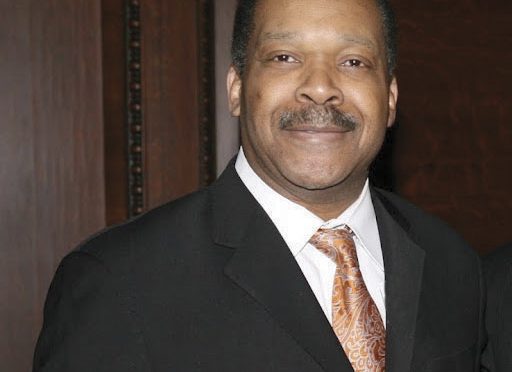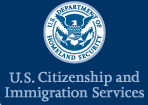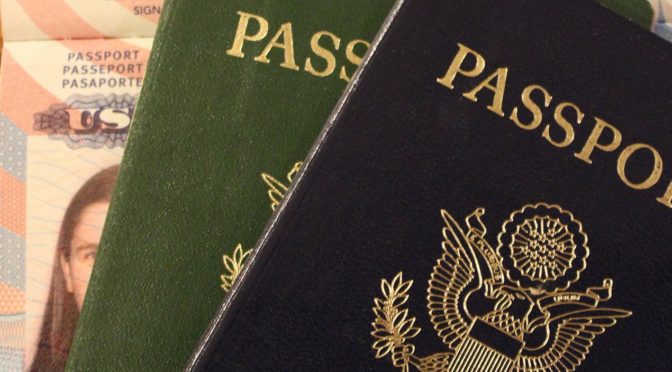The AFM strongly opposes increasing O and P visa fees as proposed by the US Citizenship and Immigration Services (USCIS). The USCIS is very short-sighted in its proposal, as imposing such increases will vastly limit international touring and arts collaborations.
In a letter sent February 8, 2023 (below), to Congressman Bennie Thompson (D-MS), Ranking Member on the House Homeland Security Committee, AFM President Ray Hair asked the USCIS to reconsider the increase in visa fees, which would irreparably damage local, state, and federal investment in the US arts and entertainment business.
Drastic fee increases will stifle international cultural activity and have a negative economic ripple effect on communities supported by arts events. This fee increase is excessive and unsustainable and your voices are sorely needed to drive this point home. Opposition comments can be made online through the US Federal Register Portal. We have posted a link on the AFM.org homepage, under Latest News. All AFM members are encouraged to click on this link and submit comments to the USCIS prior to the deadline: March 6, 2023 at 11:59 p.m. EST.
Dear Ranking Member Bennie Thompson:
First, let me thank you for the decades of help you and your staff have provided in the area of immigration assistance for the thousands of professional musicians who have navigated complex USCIS regulations. Your work has made it possible for musicians and musical artists to safely and efficiently enter the United States and provide meaningful performances, generating revenue for the US treasury from the economic boost generated when Americans attend and spend their dollars on show tickets, restaurants, public transportation, parking, and other additional expenses in order to attend and enjoy the excitement and beauty of musical performances.
However, because of fee increases proposed by USCIS that target foreign musical ensembles, this revenue is now under severe threat of elimination because musicians who book themselves annually will not be able to travel to the United States due to proposed increases in fee obligation. In addition, as the national organization designated by the US government to provide consultation letters for every musical group making a visa application to enter the United States, assistance from our organization toward the US entertainment industry would be jeopardized.
I write to request that you encourage the USCIS to reconsider this untenable and unsustainable increase in visa fees, which would irreparably damage local, state, and federal investment in the US arts and entertainment business.
Detailed Background:
The American Federation of Musicians of the United States and Canada strongly opposes the United States Citizenship and Immigration Service’s proposed increases of 251% ($460 to $1,615 per petition) to the P categories of artist visa, and 260% ($460 to $1,655 per petition) to the O categories of artist visa. These increases also include a surcharge of $600 per petition to fund the Asylum Program Fee.
International touring artists and American businesses who are still recovering from the worldwide pandemic shutdown, cannot bear the burden of such fees, most especially funding of the Asylum Program. The proposed increases are unreasonable, and are well beyond any cost-of-living increase, even at today’s inflation rate.
USCIS is very short-sighted in its proposal, as imposing such increases will vastly limit international touring, which generates considerable revenue for the American economy overall, not just for the USCIS services, in providing work permits and visas. Not only do international touring artists pay 30% or more in Federal and State taxes combined on their performance earnings, but their concert attendees patronize restaurants and hotels, fill music venues, generate revenues from ticket sales, and provide employment in the arts sector overall. For example, for a 1-week tour, most music groups budget a minimum of $ 3,000 USD per person for lodging, meals and transportation alone. The AFM processes P2 visas for upwards of 2,000 Canadian music groups per year, which tour the US multiple times in the course of one year.
Within the USCIS submission, “the service” recognizes that impacted US businesses and international artists may find the proposed increase difficult to afford. One solution USCIS offered for those impacted is to rely upon credit cards and loans. This suggestion is shocking, as credit and loan deficits will further harm the global economy—most particularly in the live performance sector that was decimated from the impact of COVID-19.
Also, USCIS has stated that these fee increases are partially necessary to improve processing times. However, in 2021 USCIS implemented an increase to its Premium Processing Services from $1,000 to $2,500. In this newest configuration, the Service has again proposed to increase the current processing time from 15 calendar days to 15 business days. Therefore, we are not confident that such a hefty increase will result in improved processing times.
There are many American entities and artists whose businesses thrive on international touring to the United States. Such increases will drive many out of the touring business and limit American artists’ ability to reach markets outside the United States. Furthermore, the music industry is globally collaborative in nature. When American artists have the ability to collaborate with international artists, it opens the door for Americans to expand into international markets. If Americans are limited to domestic earnings only, the fee increases vastly reduce their annual income as well.
While these matters are global in scope, specifically from the AFM’s standpoint and from that of the US arts community, these increases do not respect AFM’s USCIS approved Reciprocal Exchange Agreement, covering the reciprocal exchange of American and Canadian artists across respective borders. An American artist is subject to a CAN $230 work permit fee depending upon the type of engagement, but in many circumstances, Americans can enter Canada under a designation that is very similar to the United States B1-Business Visitor Visa (i.e., for little or no cost). Even at the current US $460 petition fee, the exchange is already disproportionate. The United Kingdom has a similar system to that of Canada, in that a visa fee is based upon an earnings threshold.
The vast majority of international touring artists are engaged to perform in small US performance venues, and such an agency increase would block such venues from the ability to engage international artists, thereby only leaving the larger employers, venues, and acts with access to cross-border diversity in their programming.
The AFM, along with its ad-hoc artist-visa lobbying committee (formed in 2001, comprised of many national US based arts organizations), recently met with Janis Reyes, in-house attorney, Office of Interagency Affairs, US Small Business Administration, who will be moving our concerns forward along with others, such as the farming community as one example, which will also be unduly impacted should these proposed increases be implemented.
We do understand that some form of increase to the visa permit may be required, but we strongly urge that any such increase be limited, and should be well below the proposed 251%+ increase proposed by USCIS. The arts community does not have the resources to supplement United States asylum and humanitarian programs. Such programs should be supplemented by the US government or businesses that operate within the multimillion dollar range.
While we write on behalf of musical artists, if these increases are realized they will also negatively impact dancers, actors, athletes, visual artists, and many others working in the various artistic disciplines. I kindly ask that you help us mitigate these unfathomable increases and spread the word among members of your committee to persuade USCIS to reconsider the newly-proposed fee configuration.
Thank you again, Bennie, on behalf of talented professional musicians and musical artists in the American entertainment industry. As usual, feel free to contact my office at 212-869-1330. Or you can contact AFM Legislative Director Alfonso Pollard at 718-679-5366. Thank you in advance for your consideration.
Sincerely yours,
Raymond M. Hair, Jr., AFM International President




